By guest blogger, David Hewson
 Back when I was young, a time of plague and much wailing, I used to spend long and happy days in libraries. I’d like to say this was a literary leaning on my part, though the absence of girlfriends and money may also have made their contribution. In the late 1960s my local library in northern England was a wondrous place, full of books all neatly divided into two principal categories. There was non-fiction, broken down into the obvious sub-divisions, such as science and philosophy, nature and art. And there were novels which, as far as I recall, had just a single section to one side – the yellow-jacketed science fiction titles bought in for the local weirdos.
Back when I was young, a time of plague and much wailing, I used to spend long and happy days in libraries. I’d like to say this was a literary leaning on my part, though the absence of girlfriends and money may also have made their contribution. In the late 1960s my local library in northern England was a wondrous place, full of books all neatly divided into two principal categories. There was non-fiction, broken down into the obvious sub-divisions, such as science and philosophy, nature and art. And there were novels which, as far as I recall, had just a single section to one side – the yellow-jacketed science fiction titles bought in for the local weirdos.
The rest was just fiction. No labels for crime or thriller, noir or mysteries. Just books all jumbled up together. The way you picked one was to ask for recommendations among the people you knew or simply flick through the covers on the shelves to see what took your fancy. This, I guess, is why I read widely, from Robert Graves to Ray Bradbury, Jung to the weirder corners of magic. The grim god of genre had not yet reached my cold little corner of the north. As readers we were free to enjoy what we pleased without wondering whether we had crossed some invisible line into the land of the damned.
The writers of the time were, I guess, free to pen whatever took their fancy too. Don’t you envy them? A little while back I heard a couple of people saying about one well-known author who’d dared to do something unexpected, ‘He’s dissing the genre’. Apparently I’ve transcended the genre too on a couple of occasions, which is good I gather, not that I care much because a part of me wants to know this: What *$@*^& genre?
Now don’t get me wrong. If you write about werewolves and vampires, distant galaxies or detectives who happen to be the pet cat of Tutankhamen, you are in a fixed and discernible category of fiction to which people can and will attach a label. The same goes for an author who chooses to set a tale in 1940s Hollywood with a private detective as the protagonist. Or maybe anyone who uses a PI as a lead character. I’m a Brit. I have never in my entire life met a private detective. We scarcely have them over here. Yet still people turn out Brit-based private eye stories as if the back streets of Peckham are just duller, rainier versions of Chandler’s LA. Why? Beats me…
Most of us – and I include the luminous regulars around here – don’t fit any such bill. We write about a world that’s near as dammit real, and that – I hope – is what gives our work its power. There is no deus ex machina, no wizard with a wand, sometimes no super hero, with or without magical powers, to get our characters out of their fix. Nor are we alone.
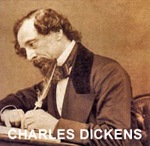 Consider this for a story. A troubled young man discovers his father was murdered by the man who went on to marry his mother (who he, the son that is, happens to find rather hot). Crime? Noir? Thriller? Or just Hamlet?
Consider this for a story. A troubled young man discovers his father was murdered by the man who went on to marry his mother (who he, the son that is, happens to find rather hot). Crime? Noir? Thriller? Or just Hamlet?
How about this one? A starving student cooks up a plan to murder a greedy old woman he regards as a parasite. The crime goes wrong and he winds up killing her half sister too after she stumbles on him mid-blow. Haunted by his increasing guilt he’s driven to confess the crime first to a prostitute, with whom he has a strangely sexless relationship, and finally to the police. When he’s sent to jail in a distant prison the prostitute follows with some hope of redemption. Dexter with a twist? No, Dostoevsky’s Crime and Punishment.
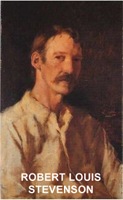 You see the point? Genre, for most of us, is an invention, a con, a tag to make us outcasts stuck in some well-labelled siding so that people – well, literary critics anyway – don’t make the mistake of taking us seriously.
You see the point? Genre, for most of us, is an invention, a con, a tag to make us outcasts stuck in some well-labelled siding so that people – well, literary critics anyway – don’t make the mistake of taking us seriously.
The truth is that most of the folk around here are slap bang in the mainstream of popular story-telling, writing for the most part about ordinary people in extraordinary and threatening circumstances, which is 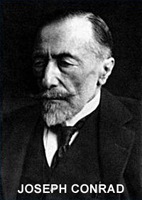 what authors have been doing for centuries. Charles Dickens, Robert Louis Stevenson, Joseph Conrad and Émile Zola are just a few of the ‘literary’ writers who produced work which, if it were new today, would be classified as crime or thriller or noir or mystery. Does that lessen the power of books like Oliver Twist, Treasure Island, The Secret Agent or Thérèse Raquin? Of course not.
what authors have been doing for centuries. Charles Dickens, Robert Louis Stevenson, Joseph Conrad and Émile Zola are just a few of the ‘literary’ writers who produced work which, if it were new today, would be classified as crime or thriller or noir or mystery. Does that lessen the power of books like Oliver Twist, Treasure Island, The Secret Agent or Thérèse Raquin? Of course not.
Genre is an irrelevance, at best a marketing tag, at worst a straitjacket that stops people writing what they should. It’s a control freak parent screaming at you to conform when you should be rebelling. It’s a comfort blanket slyly telling you to be lazy when really you ought to stretch and feel the pain.
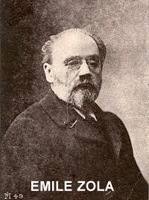 The longer I spend in this business, the more difficult I find it to categorize the work of the many talented and interesting authors I encounter along the way. This is as it should be. The little library back home that first fired me with the ambition to be an author derived its power from its refusal to classify the books it contained. If it had, I wouldn’t have read as widely as I did, and I wouldn’t be writing the books I do today.
The longer I spend in this business, the more difficult I find it to categorize the work of the many talented and interesting authors I encounter along the way. This is as it should be. The little library back home that first fired me with the ambition to be an author derived its power from its refusal to classify the books it contained. If it had, I wouldn’t have read as widely as I did, and I wouldn’t be writing the books I do today.
Literature’s greatest strength is its rich breadth, the fact it doesn’t adopt the dumbed-down one-size-fits-all philosophy that has taken over so much of our culture. Does that embrace sub-categories? Yes, but only when we choose to place ourselves inside classifications – horror, history, or science fiction, say – that make sense to readers and writers alike.
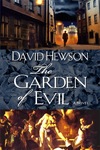 Filing everyone else who writes popular fiction under the catch-all labels of crime, thriller and mystery serves no one any purpose. Next time you find yourself in a book store gravitating automatically to the shelves and names you know so well here’s a tip. Go try something else.
Filing everyone else who writes popular fiction under the catch-all labels of crime, thriller and mystery serves no one any purpose. Next time you find yourself in a book store gravitating automatically to the shelves and names you know so well here’s a tip. Go try something else.
David Hewson’s latest book The Garden of Evil is the sixth in his Nic Costa series set in contemporary Rome, and his twelfth novel. He lives in the UK (hence the spelling) but will be at Bouchercon if anyone is still speaking to him.
Special note: Join us on Sunday, September 7, when our guest blogger will be bestselling thriller author, Alafair Burke and on Sunday, September 28 when we welcome guest blogger, Allison Brennan.

Outstanding, thank you. I’ve been pondering a similar post for my blog, but you have said everything I would have said, plus some, and better. I think I’ll just send anyone who hits my blog (both of them) over here.
Bravo! I’ve always thought cover art and back cover copy were all that was necessary to give the reader an indication of what type of book it was. Obviously someone who likes dark, slasher-type books wouldn’t automatically reach for a book with a cat and a teapot on the cover.
The genre pigeonholes are – in my humble opinion – artificial and confining constructs of the publisher in an attempt to maximize their profit structure, and have nothing to do with the pleasure, comfort or happiness of the reader. Why else would we be ‘strongly urged’ to use a new name for every different genre?
Funny you’re the guest today, David–I just bought THE GARDEN OF EVIL from Amazon last night. I love, love, love your cover. If you stop by to comment, please talk about your cover. It’s one of the best I’ve ever seen.
As a cross-genre writer, I often wonder why genre is important at all. I assumed it was so bookstore clerks jobs were easier–but the truth is, it’s so readers can find us. Not always fair, but I’ve had a couple friends who were shelved in general fiction and their core readership never found them, so their sales dipped. Or the romantic suspense writer who was moved from romance to mystery/thriller when she switched houses, and her sales were lackluster because her core readership couldn’t find her. And people, for the most part, don’t want to ask.
But as an eclectic reader myself, I just want a good book that I can lose myself in and forget the passage of time.
But labels can make you difficult to find too, Allison. In the UK I am variously filed under ‘crime’, ‘thriller’ and ‘general fiction’, and the place you’ll find me can vary from store to store even in the same chain. I do understand why stores, libraries and publishers may feel they need these tags, by the way. I just have my doubts about their value to authors and readers.
Glad you liked the cover. Yes – it is great, but it took six Costa books for us to get there in the US and we had some less successful ones along the way. But that is the style from now on -and the cover for the next book is, in my view, even better. I can, however, claim no credit for any of this – it’s down to the geniuses at Bantam Dell.
Will happily follow up on other questions if anyone has them but please note I am en route to a tour in South Africa so it will be a little while before I next manage to log on, and that will be in Cape Town.
Many thanks to all the killerbloggers for setting up such an interesting venture… and for allowing me to rant.
Thank you for a wonderful post today, David!! I so love the idea of rattling the genre bars. Years ago, when I was writing for a YA mystery series under a pseudonym, I remember the senior editor commented how “dark” one of my books was. At the time, I was afraid she was going to make me do a rewrite–now, I see it was the beginning of my own writer’s voice emerging.
My local library has two types of “adult” books: fiction, and non-fiction. I never have any trouble finding what I want.
Booksellers demand a genre label, and publishers are looking for writers to break out, and no one’s happy when your “romance/sci-fi/mystery” gets shelved different places in different bookstores. I think just calling it all ‘fiction” is the way to go.
Hey, David, I think you’ve hit the nail on the head. Why not just alphabetize all fiction and let it be? Surely sales would be more consistent, and covers could convey the book type. Some pub houses label the genre on the back anyway.
As someone working on a book that is currently non-genre [popular fiction? contemporary fiction? who knows?], I feel the pain of dealing with the expectations void. Mysteries are much easier to create because the pieces are defined. Non-genre requires a different way of thinking.
Thanks for reminding us that a helluva good story can be just that.
For the record, our local library in the outskirts of Melbourne [AU] separates fiction into four: children’s, adult hardback/tradePB, large print, and mass paperback genre. How’s that for practical?